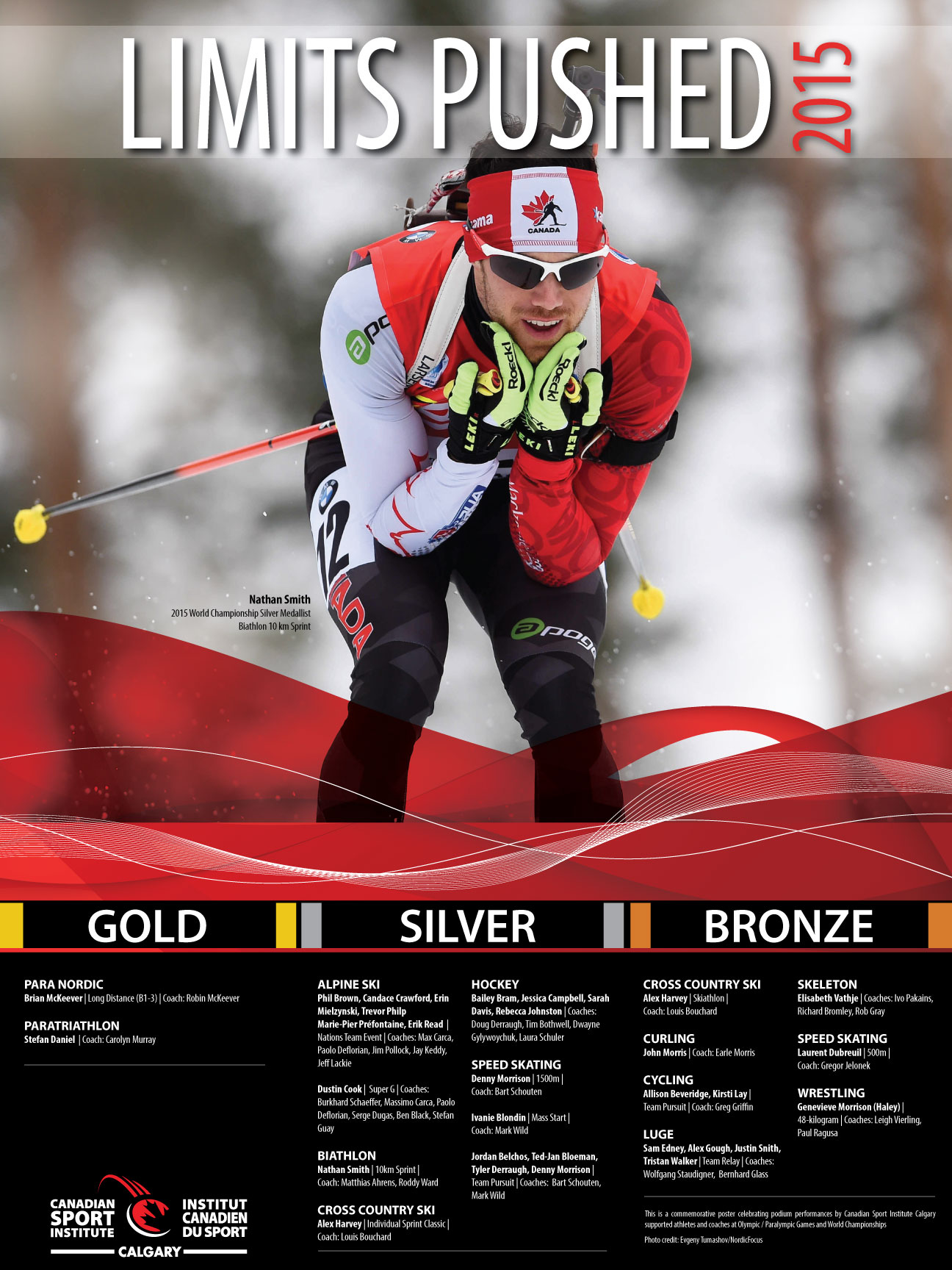2015 Year in Review
As 2015 ends, the Canadian Sport Institute (CSI) Calgary has chosen to look back on some of the success stories of the past year.
We have compiled a list of the top five athlete performances of 2015. We began with a long list of athletes who achieved excellence by winning a medal at a major event. The staff then voted from the list based on a criteria of athletic excellence combined with the impact that the CSI Calgary had on the athlete’s performance.
Cowntdown of the Top 5 CSI Calgary performances from 2015
#5 McKeever Golden as he Adds to Lifetime Medal Haul
Brian McKeever, along with guide Erik Carleton, won the para-nordic 20-kilometre race at the IPC World Championship. No stranger to winning, McKeever has won 13 Paralympic medals in his illustrious career.
#4 New Canadian Takes Speed Skating Team to Unprecedented Level
Ted-Jan Bloemen set the 10,000m World Record and was an integral part of the Team Pursuit that won World Championship silver. The previously Dutch competitor has only competed for Canada for one year, taking advantage of his dual citizenship to compete wearing red and white.
#3 Wrestler Gathers Medals at Multiple Major ChampionshipsGeneviève Morrison won bronze at the United Wrestling World Championships and gold at the Pan Am Games. The 48kg wrestler’s results earned an Olympic berth for Canada.
#2 Multiple World Championship Medals
Denny Morrison continued his speed skating dominance with two World Championship medals, finishing second in both the Team Pursuit and 1500m.
#1 Biathlon History is Made!
Nathan Smith won World Championship silver to become the first Canadian male ever to win a World Championship medal in biathlon. Smith also won the men's 12.5-kilometre pursuit race at a World Cup in 2015, becoming only the second Canadian ever to capture World Cup gold.
Further to our athletes’ success, the CSI Calgary has had many other successes in 2015. The CSI Calgary has continued to exhibit leadership in a variety of areas. Here are a few highlights:
The CSI Calgary is proud of the direct impact that our staff continues to have on many of the world’s best athletes. Our goal is always to strive for excellence. With the 2016 Olympic Games on the horizon, we continue to move forward with relentless determination.
Here’s to an amazing 2015 with great athletic accomplishment, and great things to come in the new year!
Canadian Sport Institute Calgary: @csicalgary
Written by Brittany Schussler: @BSchussler

